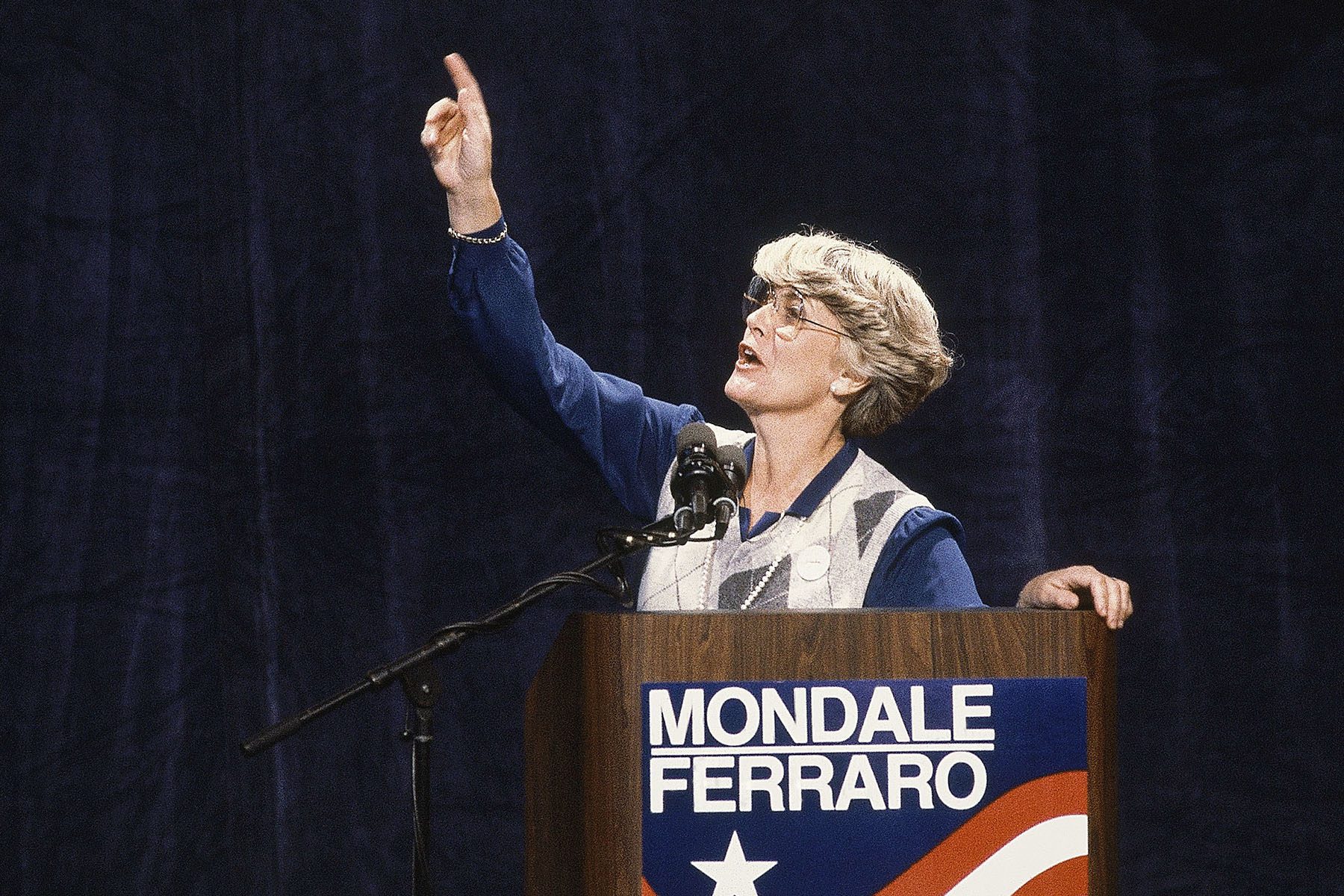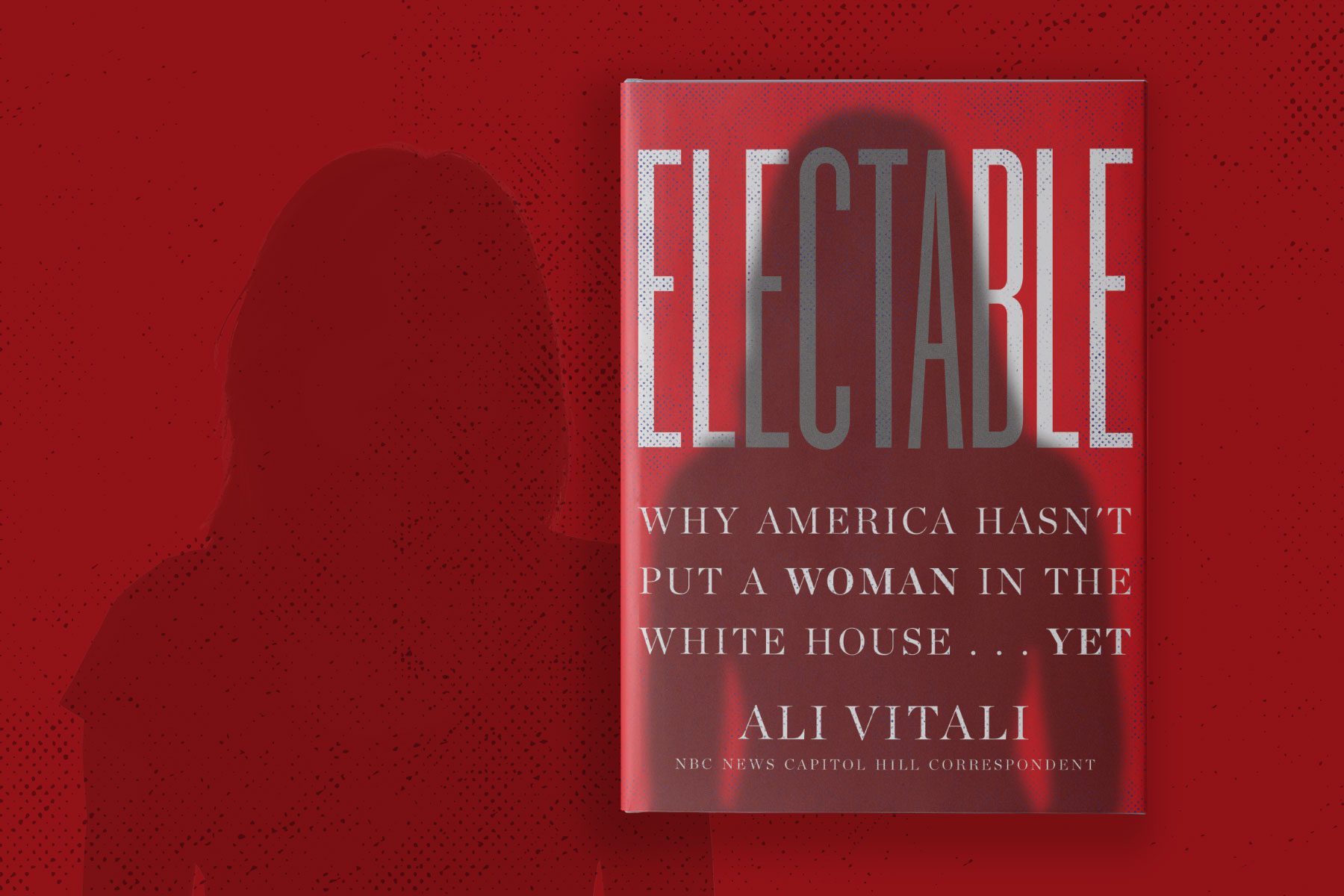In the centennial year of suffrage, Ali Vitali and I were both on the 2020 campaign trail covering the most diverse slate of candidates to ever run for president, one that included a record six women, an openly gay man and several people of color.
Over the course of a year, the field swiftly narrowed, with the lone Black woman in the race exiting before any votes were cast. By Super Tuesday, only septuagenarian White men — America’s default setting for what is considered “presidential” — were left.
Four years earlier, Vitali and I both watched Hillary Clinton make history before her defeat. Now, we again were left wondering what it would take for a woman — any woman — to be elected president.
For Vitali, that question became the basis for a book.
“Electable: Why America Hasn’t Put a Woman in the White House … Yet” publishes on Tuesday and explores notions of what criteria qualify as presidential through gendered narratives and the big question: Will America ever elect a woman as its top leader?
With women again set to make history as the deciders and trailblazers of another election cycle, in a month where we mark the anniversary of the 19th Amendment that unlocked access to the ballot for millions of women after a decades-long struggle, and in an era where women’s political power and progress are in question, Vitali and I had a robust discussion about gender, our politics and power.
On the day Vitali and I spoke, she ducked into NBC News’ Capitol Hill bunker before her next on-air appearance. She was a long way from the Des Moines, Iowa, Hilton, where the idea for “Electable” first came to mind.
“At that point, the book was the last five years of being on the road doing Trump, doing midterms, then doing Democrats and actually constructing the story of how Trump won again, because at that point, that’s what I felt like was going to happen, no matter who Democrats put forward,” she recalled. “When this book came to be, it really stemmed from the coverage I had done of Elizabeth Warren leaving the race, compounded with Amy Klobuchar leaving the race two or three days prior … and people realizing that it was another moment where women were six people in this massive field of Democrats, and none of them were the last one standing.”
It was something we’d both seen at the beginning of the primary — the enthusiasm for candidates like Warren and the “Klobmentum” that propelled Klobuchar to a surprise third-place finish in New Hampshire. I remember predicting a long primary season that might feature at least the two of them, if not more. But it was all over in a matter of weeks.
Why? I asked Vitali.
In the book, Vitali writes about a poll done by Avalanche Insights in which Elizabeth Warren was what they called the “magic wand candidate,” or the person who won if voters could wave a magic wand and choose the winner. Biden, in contrast, ran away with the horse race, because people saw him as the most electable.
The pollsters asked people: What’s the thing that the “magic wand candidate” could change to become the “horse race candidate”? The answer: Be a man.
“It’s because we still don’t know what to do with things that we haven’t actually seen before,” said Vitali. “As people who are not straight White men, we understand what it means to see women who look like us, who sound like us, who have experiences like us in these spaces.”
I definitely saw much of the 2020 election through the lens and stakes of my lived experience as a Black woman. It inspired me to write a book, too, on Harris and Black women’s leadership that I’m in the process of writing. Vitali and I talked about what Harris’ presence in the race, and now in the White House, means for America.
Of Harris, now nearly two years into her historic term, Vitali writes: “Experts and sources on both sides of the political spectrum, insist that having her there — in the most presidential and non-presidential role there is — makes it a little easier for any woman who comes next. But all these women — Republicans, Democrats, and even Harris herself — will have to contend with the reality that while a woman has been elevated to the closest president point, she has never been elected to the presidency, outright and on her own.”
Today, the two most powerful women in American politics — Harris and House Speaker Nancy Pelosi, also the first woman to ascend to the role — were both elevated to their positions. Vitali plays with the idea of elevation versus election, and notes that either of these women — in addition to the five women who ran for president in 2020 — would’ve been on a path to the presidency in some other democracies in the world.
“The fact that two women sit behind the president of the United States for the first time at the State of the Union with Joe Biden is massively important — and also, it does show us that women have a long way to go,” Vitali told me. “For people like Pelosi, if we lived in Britain, she’d be the first female president. This is how women have been able to rise, and it’s how history tells us women are able to rise to leadership positions in communal bodies like the House.”
Biden was eventually able to parlay his vice presidency into a presidential bid and victory, but Vitali notes, the position — while often seen as a springboard — is hardly a glidepath to the presidency. Add to Harris’ challenge that she is an untraditional figure in a traditional role, and “I think people are so lacking with the tools to make sense of it,” Vitali said.
“They expect her to do everything different, because she looks different than everyone else who’s been there, but if she were doing something different, she wouldn’t be doing the job — and we should really want the vice president to do the job,” she continued.
This week, Vitali reported from Alaska. There, Sen. Lisa Murkowski is fighting for a fourth term, and former governor Sarah Palin — the last woman before Harris to be nominated for the vice presidency — is looking to make a political comeback, running for a seat in the U.S. House. In Wyoming, Rep. Liz Cheney lost her primary to her Trump-backed opponent, Harriet Hageman, after she became one of the former president’s most vocal critics and co-chair of the congressional hearings on the insurrection at the U.S. Capitol on January 6, 2021.
Republican women — including Palin, Murkowski and Cheney — have also shaped notions of electability, leadership and power. Could they also chart a pioneering path to the White House? Vitali thinks so, and added that she believes Cheney is “100 percent” running for president in 2024.
And if Trump runs in two years, as he has hinted at, he seems likely to pick a new running mate. “It would make sense for him to pick a vice president who is also a woman,” Vitali said, pointing to Arkansas Republican gubernatorial candidate and former Trump press secretary Sarah Huckabee Sanders and South Dakota Gov. Kristi Noem as possible contenders.
“It will make his ticket stronger to have a woman,” Vitali said. “I know this sounds like it should be an obvious statement, but the fact that it’s now accepted knowledge that having a woman on the ticket is a value-add is a huge departure from 1984,” when Democratic presidential nominee Walter Mondale chose Geraldine Ferraro as his running mate and the first woman vice presidential candidate.
“That Joe Biden had a no-brainer to pick a woman as his vice president shows us that progress has been made, and that women are seen as assets,” she continued. “The question is, ‘When will they be seen as assets in their own right — not just as someone who’s a “value add” to a male candidate?’”

Two years after having the idea that is now a book, Vitali’s notions of what it means to be electable are largely unchanged.
“The goal of this book, for me, was that there’s so many things people like you and me might feel during the course of our coverage: We feel that it’s harder for women, we feel like they are treated like they have less room to make a mistake. … We feel that, but then to actually be able to say that it’s also true and that it actually impacts the way that people will or won’t vote for them is really the only thing that matters here. Electability is the whole ballgame.”
So does Vitali think America will elect a woman in her lifetime?
“Yes, I do think that we are done with a time when fields will be solely male on both sides,” she said. “That moment is gone, in large part because parties can’t afford that. It looks bad, but also because there’s no longer the excuse that the pipeline doesn’t have people in it who are ready.”
Vitali exhaled: “God, I hope so.”













